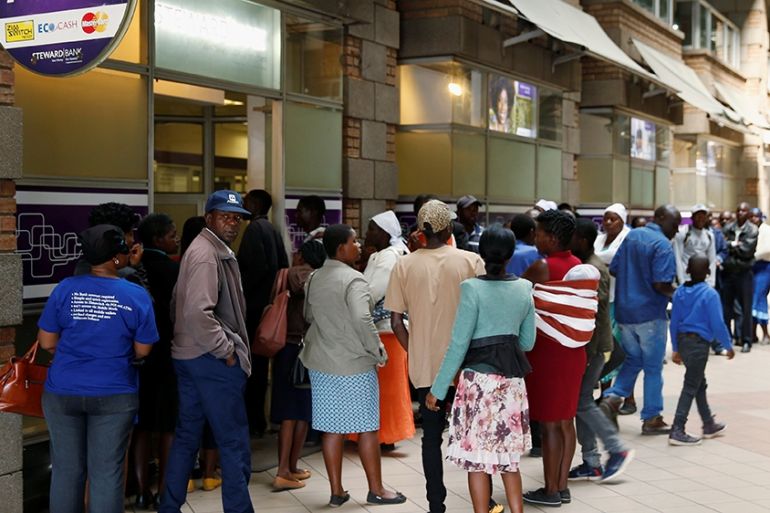UN envoy: Zimbabwe’s economic, political situation deteriorating
Official warns of ‘fear, frustration, and anxiety among a large number of Zimbabweans’.

Zimbabwe‘s political and economic environment is deteriorating, causing anxiety as hopes fade for a long-awaited improvement in living conditions, a United Nations human rights envoy said on Friday.
Many Zimbabweans are frustrated that the November 2017 departure of longtime President Robert Mugabe, who died September 6 of this year in Singapore, did not lead to a quick economic recovery or end the heavy-handed tactics of authorities in the country.
Keep reading
list of 4 itemsOstracising Israel at the UN should be a priority
UN watchdog warns on nuclear trafficking
South Africa seeks third intervention against Israel at ICJ
The International Monetary Fund said on Thursday that annualised inflation in Zimbabwe hit almost 300 percent in August, and called on Harare to intensify reform efforts.
Clement Nyaletsossi Voule, a UN envoy on the rights to freedom of peaceful assembly and of association, told reporters after a 10-day fact-finding visit that Zimbabweans were questioning the capacity of President Emmerson Mnangagwa‘s government to bring about change.
“Albeit the common belief that a transformation will come, I believe that the long-awaited hopes are fading,” Voule said.
“I have perceived from my different meetings around the country that there is a serious deterioration of the political, economic and social environment since August 2018, resulting in fear, frustration and anxiety among a large number of Zimbabweans.”
Nick Mangwana, the information ministry’s permanent secretary and principal spokesman, could not be reached for comment on Friday.
Peaceful protests?
Mnangagwa’s disputed election win last year was met by a security crackdown that killed six people, while more than a dozen people died in January when security forces moved in to quell fuel protests that had turned violent.
The government arrested scores of civil society and opposition officials after the January protests and charged them with subversion, which carries a 20-year jail term.
Voule said Harare authorities should withdraw the charges against civil society leaders to build trust between the government and non-governmental organisations, as well as stop surveillance of the groups by state security agents.
Voule, who will present his report at the UN Human Rights Council meeting in June 2020, also urged Mnangagwa’s government to amend security laws to allow peaceful protests and remove a blanket ban on demonstrations.
Last month, police and courts banned the country’s main opposition party from holding countrywide protests over Mnangagwa’s handling of the economy, saying the demonstrations posed a security threat.